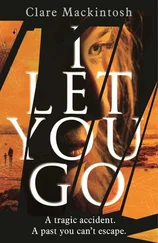At that very moment of recollection, an incensed Will’m resurfaced in time to cut Gilles off about his damn millet-gorged birds, barking (the perspicacious reader may recall), “That is the Frankish way, isn’t it? Murder a thrush behind veils of civility! Truth be told, the French are a dishonorable and troublously shoddy race.”
And so the baker’s history crashed to a halt. †
Such embroidery is mere preamble to the aforementioned vexation: to wit, the baker’s remorse over what he implied was the jilting of the “long-lost” bride-to-be (not Lani, by a long shot) who attended the fabled fête des gourmands . A shadow fell over him at chapter’s end — did the author clumsily mean it to be Trinnie’s? — as he wistfully reflected upon his double life. Amends, he said, were due! The reader of these pages knows better now, of that we are certain; still, if way back when, the very same but for a moment believed — if it is feasible the reader could have actually, however fleetingly, believed that the baker Gilles Mott (whose name alone too coarsely hints at things “Toulousian”), at such an early stage, was plausibly central to our tale — and, even more implausibly, if one could believe that he is still — well, then it is understandable how that reader may now turn his nose up at this red herring and feel the whole gambit to be unworthy of an author who appeared to pride himself on being sensibly meticulous; or that it was at least improvident of the latter to dredge it up here, for it may only serve to illuminate his overreaching expository failures. If such is the case — if the reader is of that opinion — then there is nothing to be done. Suffice to say Gilles Mott does have reason to suffer, and reason to believe he has caused great suffering of another. He will make amends. But this is not the time or place. †
Let teller and listener thus reconciled, regroup — and dust themselves off to remount. That’s what this chapter’s about. The trail is winding, the pace leisurely; let the loping, mulish narrative carry one along.
During the Pullmanic gala’s froth of fireworks, across the hill on Stradella, in surrey-fringed conversation, Edward Trotter, that wisest of boys, touched upon the extracurricular activities of his parents, pictorially pornographic and otherwise. He alluded to private prisons and Dead Baby Societies, but his blithe monologue went unheard; Tull’s concerns over the mysterious monogrammed letter took precedence. We have already looked into that missive with some thoroughness so can spend this time enumerating recent powerful developments in the destiny of Joyce Trotter née Gilligan.
She sat at the dermatologist’s flipping through Condé Nasts, then leaned to pull two “throwaways” from the pile. The glossy 310 had a garish photo of Katrina Trotter and Ralph Mirdling at a black-tie gala, standing beside studio titan Sherry Lansing, billionaire Gary Winnick and screenwriter Ron Bass. (All looked amiable except for the wincing Mr. M.) Joyce then opened the Courier to find a photo of her husband and Marcie Millard in white hardhats standing with shovels at the fence surrounding his former grade school. That would have had to have been staged , she thought; not even Dodd’s money made things happen that fast .
Her eye drifted to an ad:
EXCEPTIONAL CRYPT FOR SALE
Pierce Brothers Mortuary in Westwood Village
Resting Place for a Single Casket and a Single Urn
Located in “Sanctuary of Peace”
Crypt is at eye level, in the same enclave as
Marilyn Monroe, Truman Capote, Natalie Wood and other legendary personalities
Price $105,000
There are no longer any other crypts available in this Sanctuary.
Don’t burden your heirs with a hasty choice of your final resting place.
It gave her the biggest idea she ever had in her life.
As she drove through the cemetery gate, infused with collagen and Percodan, Joyce saw a familiar coxcombly figure at the far end of the oval drive — her father-in-law, chatting with a groundskeeper. She parked close enough to see the old man press something into the other’s hand before Epitacio shut him into the Silver Seraph and spirited him away.
She of course knew of Mr. Trotter’s exhaustive search for the ideal mausoleum, but had never visited the winning Westwood site. She’d never seen any of the famed funerary models either (except for the doghouses), not having had a great interest and never, oddly, having been invited into that most legendary and exclusive of clubs: the Withdrawing Room. Amazing, she thought, to run into him at this time of day — the man truly was obsessed! Joyce watched the Rolls roll away and the homely caretaker return to raking. Then she ambled to the park office, where a receptionist quickly introduced her to Dot Campbell, the effervescent manager (she used Gilligan instead of Trotter); Ms. Campbell, in a smudged gingham, seemed ill-fitted for the part.
As they strolled the enclave past various “bench estates” and columbaria — new mausoleums were in varied stages of construction — she learned more about Ms. Campbell and her sister Ethel’s pet peeves than she might have cared to. That was all right; in this instance, a kind-hearted eccentric would serve her well. SIT DOWN AND HAVE A CHAT WITH SADIE AND MORRIS was etched into a marble love seat beside two graves. Dot explained how Sadie and Morris were not yet dead but wanted the legend inscribed anyway. In funeral-world parlance, that was what they called pre-need.
Something drew her to the farthermost corner of the property, where a maintenance yard was being razed to make way for more tombs. It was lonely there, and felt colder than the rest of the grounds. When she saw a whitish pigeon wheel overhead, it reminded her of the doves at Castaic and she knew her instincts were, well, dead-on. Dot was glad the woman was interested in something family plot — size and said the work-in-progress parcel could be had for a million and a half, including a newly built adjacent shrine.
But Joyce said she wanted a simple field of grass, and besides, the unfortunately pink cenotaph held just four — not nearly enough. No: her babies needed to be in and of the earth. Well, said Dot, an unbuilt-on field did have its advantages — caskets could be “contumulated” or stacked vertically; if you cremated, you could fit more than a dozen. The benefactress stared at a separate grid that was going for about $500,000—at eleven by fourteen, it still seemed a bit confining … yet what was she expecting in the middle of Westwood? Elysium? Would she even be able to raise that sort of money to bury unknown children? She would have to incorporate her loose-knit group of “angels.” They could call themselves Candlelight — the Candlelight Group. The Candlelighters … they’d have fund-raisers and make the bigwigs give them their money. She was adamant on doing it all without Dodd’s help.
Joyce felt a surge of confidence and emotion. The gesture of acquiring Westside memorial space was born not of convenience (the drive to Castaic was actually meditative) but as a way of weaving those orphans into the everyday tapestry of her — Westside — world. There was something mildly depressing about their current resting place, that arid, unincorporated outback of hinterland exurbia butt-up against the whiz and rumble of failed ride-share speed lanes, sig-alert big-rigs and CHP gunships. How magnificent it would be to bury those treasures here —here, not there — amid wealth of skyscraper, museum and university, far from potter’s field. The poorest of forgotten children may after all help the richest of men into heaven.
When they were done, Dot let her be. She communed with Dorothy Stratten, Donna Reed and Dean Paul Martin, then with deliberation, “Mrs. Gilligan” moved closer to the groundskeeper, who now angled toward her as he raked. She struck up a casual conversation, wondering in what schemes her father-in-law had enlisted him. It was Sling Blade’s peculiar fate to be linked to all the Trotters, without one another’s knowledge.
Читать дальше












